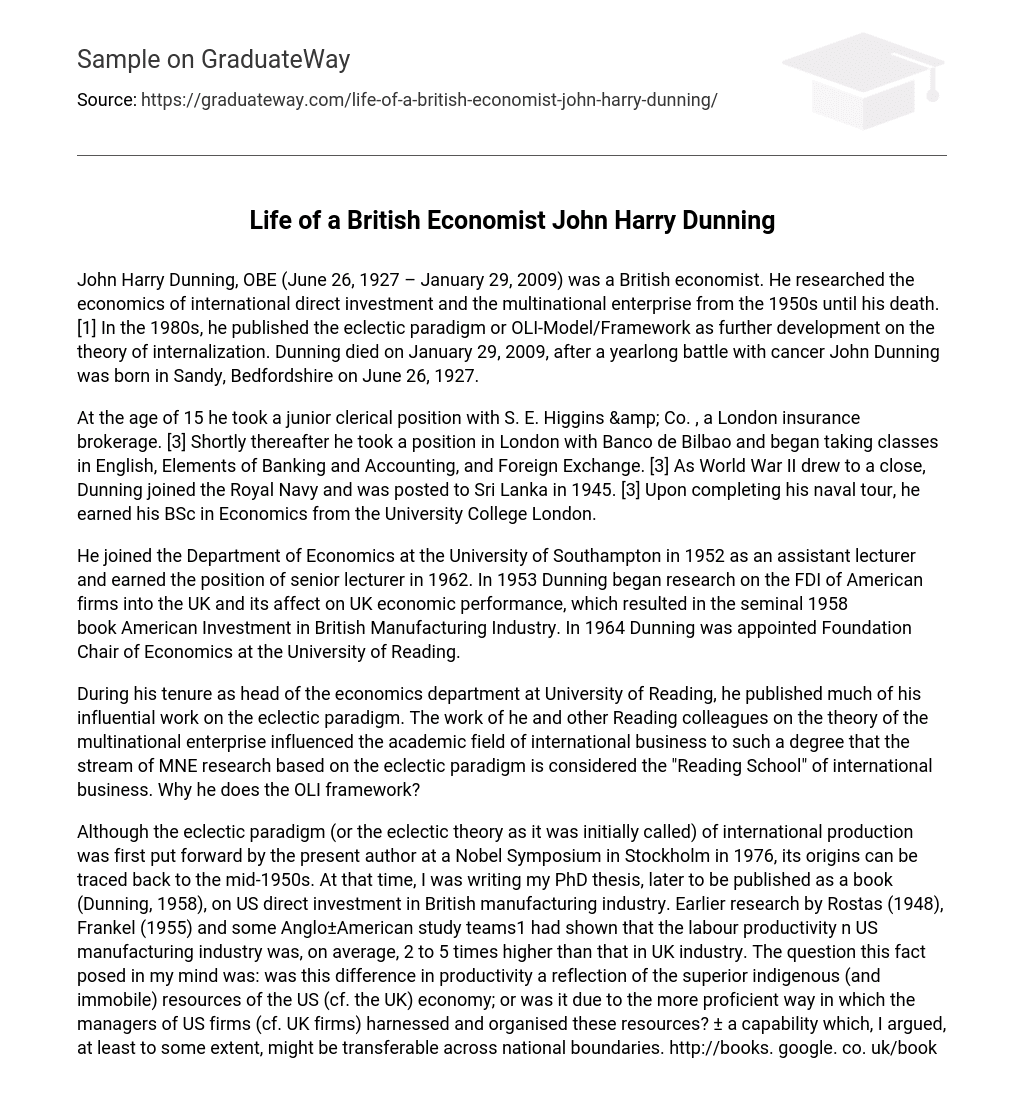John Harry Dunning, OBE (June 26, 1927 – January 29, 2009) was a British economist. He researched the economics of international direct investment and the multinational enterprise from the 1950s until his death. In the 1980s, he published the eclectic paradigm or OLI-Model/Framework as further development on the theory of internalization. Dunning died on January 29, 2009, after a yearlong battle with cancer John Dunning was born in Sandy, Bedfordshire on June 26, 1927.
At the age of 15 he took a junior clerical position with S. E. Higgins & Co. , a London insurance brokerage. Shortly thereafter he took a position in London with Banco de Bilbao and began taking classes in English, Elements of Banking and Accounting, and Foreign Exchange. As World War II drew to a close, Dunning joined the Royal Navy and was posted to Sri Lanka in 1945. Upon completing his naval tour, he earned his BSc in Economics from the University College London.
He joined the Department of Economics at the University of Southampton in 1952 as an assistant lecturer and earned the position of senior lecturer in 1962. In 1953 Dunning began research on the FDI of American firms into the UK and its affect on UK economic performance, which resulted in the seminal 1958 book American Investment in British Manufacturing Industry. In 1964 Dunning was appointed Foundation Chair of Economics at the University of Reading.
During his tenure as head of the economics department at University of Reading, he published much of his influential work on the eclectic paradigm. The work of he and other Reading colleagues on the theory of the multinational enterprise influenced the academic field of international business to such a degree that the stream of MNE research based on the eclectic paradigm is considered the “Reading School” of international business. Why he does the OLI framework?
Although the eclectic paradigm (or the eclectic theory as it was initially called) of international production was first put forward by the present author at a Nobel Symposium in Stockholm in 1976, its origins can be traced back to the mid-1950s. At that time, I was writing my PhD thesis, later to be published as a book (Dunning, 1958), on US direct investment in British manufacturing industry. Earlier research by Rostas (1948), Frankel (1955) and some Anglo±American study teams1 had shown that the labour productivity n US manufacturing industry was, on average, 2 to 5 times higher than that in UK industry.





